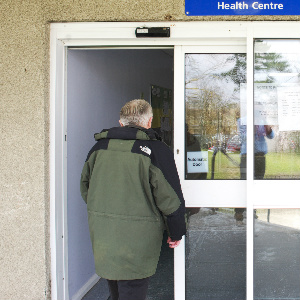Five tips for managing your service charge once you’ve moved in

Service charges are one of the most significant premises costs for GP tenants to contend with. They are not fixed and are prone to change, making planning and budgeting very difficult in some cases. Not only this, a large unexpected increase could be financially inconvenient, especially at a time when the strain on GP finances is already so great. Therefore, it is vital that GPs take steps to check their service charges and ensure that charges being levied by their landlord (PropCo or private) are in accordance with their lease.
All GPs must be clear that landlords should not be making a profit from the service charges they receive. The service charges should simply cover their costs. If you believe this not to be the case, you should speak to your surveyor as soon as possible in order to establish the facts before any action is taken. The following tips should give you a clearer understanding of how service charges work, what’s involved in negotiating them, and how you could reduce your service charge as a result.
This article covers five tips for GPs who have already signed a lease, and the following article will cover five tips for GPs who already have a lease, but want to manage their service charge in order to control costs.
1 Get an itemised bill
Under the code for service charges: service charges should be ‘fair and reasonable’.1 Therefore GPs should always ask for an itemised bill of each year’s service charges which allows you and your surveyor to check their accuracy as fully as possible.
You can then challenge any aspects that you don’t think are ‘fair and reasonable’ via your surveyor who will advise on and challenge the service charges on your behalf.
There are some things which should be excluded from your service charge bill. These include:
-Initial set-up costs (eg the initial fit out of the premises and the landlord’s legal and surveyor costs).
-Costs of remedying inherent defects (or losses resulting from inherent defects).
-Legal and management fees incurred from any enforcement action taken against defaulting tenants.
-Costs associated with empty units (eg advertising of vacant space).
-Costs of improvements (unless justified).
2 Ask to see the budget in advance
Budgets should be provided to you by the landlord one month prior to the charge period. This should show you exactly what your landlord is expecting to spend in the coming year.
However, in my experience, this isn’t always the case. If you don’t receive this, make sure that you ask for it as soon as possible so you can plan for any increases. In fact, put an annual reminder in your diary (or your PM’s) to ensure that you don’t forget.
If you are unclear about any aspect of the budget, you should contact your landlord and ask them to clarify it in as much detail as possible.
3 Analyse your statement in detail
Your landlord should provide you with a detailed statement four months after the end of the charge period explaining exactly what’s been spent and on what.
Once again, if you don’t receive this, make sure you ask your landlord for it. Compare it carefully to the service charge budget which you received at the beginning of the year and ask your surveyor to check it thoroughly to ensure that you haven’t been over charged.
4 Look back for claims on old service charges
If you believe that you were charged too much in service charges a number of years ago and haven’t yet challenged it, you could potentially challenge it now and claim money back from your landlord retrospectively. However, you would need to be able to prove that this had been the case and the ability to challenge would be determined by many different factors including the terms of your lease. Your surveyor can advise you as to whether this would be the right course of action for you.
5 Don’t pay for what you don’t use
As mentioned in the previous article in this series, if you occupy a mixed use building then you need to ensure that your service charges are calculated according to how each occupant utilises the space. For example, if you’re a GP surgery who shares a building with a pharmacy and a café who both produce a lot of bulky waste, you should pay proportionally less for the provision of bins.
Not only this, if you only occupy the building for 10 hours a day but the pharmacy occupies it for 24 hours a day, your service charge should reflect this too.
Check your floor areas are correct. If the service charge is apportioned on a floor space basis, ask your surveyor to calculate/agree correct areas and have them clearly inserted in the lease under the service charge element. You must also make sure these can be altered if floor space changes. If you have never had your floor areas checked by a surveyor, make sure you do so as soon as possible.
Chris Johnson is a chartered surveyor and Director at GP Surveyors.
Reference
RICS Code of Practice for Service Charges in Commercial Property, third edition. 2014. http://tinyurl.com/okmlsg9
Resources
Details about the new rent review process can be found here: http://www.gpsurveyors.co.uk/resources/papers/Leased_premises
Premises Cost Directions. 2013. http://pulsetoday.co.uk/premises-directions
Pulse October survey
Take our July 2025 survey to potentially win £1.000 worth of tokens










